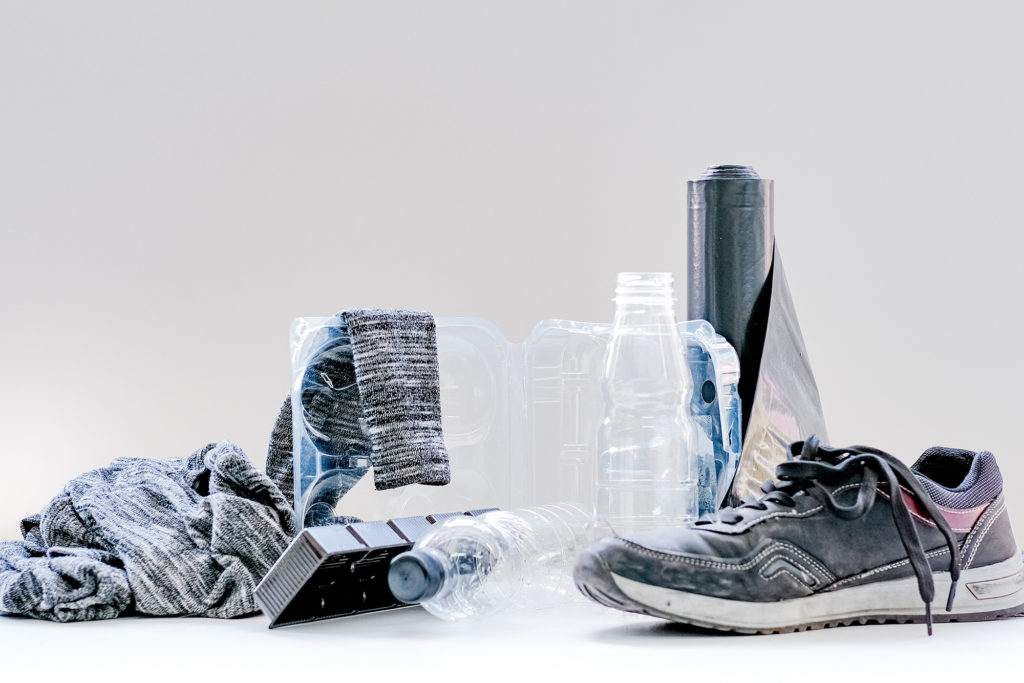Fifty-two percent of worldwide CO2 emissions are linked to plastics. And only nine percent of plastics are currently recycled, with the rest either being incinerated or going into landfill. In response to this appalling state of affairs, DePoly, a spin-off of the Federal Institute of Technology EPFL Valais/Wallis, has developed a promising solution for managing plastic waste. It uses a chemical reaction to break down plastics into reusable raw materials. “Our process can be used to recycle pre-consumption, post-consumption and post-industrial plastics – not just PET but also PLA (polylactic acid), PBT (polybutylene terephthalate) and PU (polyurethane),” says Samantha Anderson, DePoly’s co-founder and CEO. This process, known as depolymerisation, involves breaking the chemical bonds in plastic to obtain a liquid, monoethylene glycol (MEG) and a powder, terephthalic acid (PTA), which are then used to make new PET that is identical to the original material. The process requires no pre-washing or pre-sorting.
“The materials generated from these polymers are the same as those that are currently produced by the oil industry,” says Samantha Anderson. But there’s a big difference: this new process cuts CO2 emissions, reduces the amount of waste plastics (and microplastics), and lessens our dependence on the oil industry. And because it works at ambient temperature, the process developed by DePoly has the additional advantage of reducing the energy required to produce recycled PET by nearly two-thirds compared to making ‘virgin’ PET.
The pilot phase proved that this chemical process works – and works well. A demonstration plant in Switzerland, due to be up and running by 2025, will process around 500 tonnes of PET a year. The first industrial installation should be operational by 2027-2028. In the longer term, DePoly plans to roll out its technology beyond Switzerland’s borders. “We’ve been working on proof-of-concept projects with companies in Europe, the United States, Japan, South Korea and Mexico,” adds Samantha Anderson. In 2020, an initial round of fundraising brought in CHF 1.3 million, followed by a seven-figure investment in 2023.
The potential is enormous. Samantha Anderson stresses that all PET waste that can’t be recycled mechanically could theoretically be handled by this process. “We are helping businesses achieve their sustainability goals by supplying them with recycled raw materials with a lower carbon footprint than oil-based products,” she says. “Our solution copes easily with contaminants, so we can also re-direct plastics that would otherwise be incinerated into this recycling process.”

DePoly SA